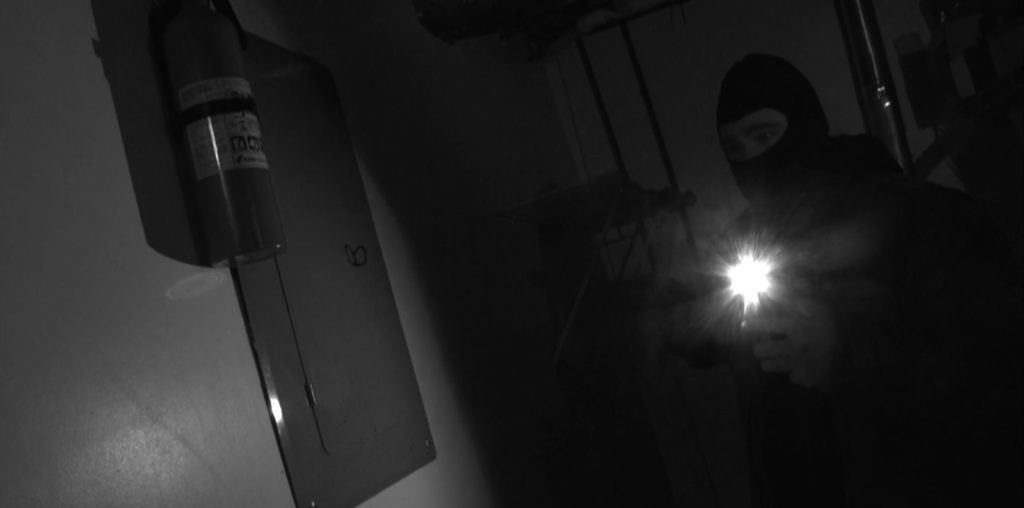
The notion of a woman wielding power in the White House is nothing new to the American public, though it has yet to be realized. Remember back in 1984, when Geraldine Ferraro was picked to run as Vice President of the United States on the Democratic Party ticket along with former Vice President Walter Mondale as the candidate for President. Imagine now if instead of running for VP, Ferraro was tapped to replace a Vice President who died in the middle of his second term? Sounds plausible, especially if you jump ahead a few years to a surreal political landscape where there is no Bush, no Gore, just an amiable guy in charge who embodies the best morally and politically that Clinton has to offer without any of the slung mud. In fact the guy-in-charge, Jackson Evans, is kind of a laid back dude, so it’s fitting that he’s played with warm slackness by Jeff Bridges who incarnated a surprisingly similar persona (the Dude) in the Cohen brother’s brilliant failure, “The Big Lebowski.”
Add to the mix that the VP to be sworn in is good-looking, even sexy, and full of unwavering resolve. She’s also a mother, a dutiful wife and the daughter of a political legacy (the always gripping Philip Baker Hall). But Senator Laine Hanson has a little secret in her closet: there’s well documented evidence that while in college, Ms. Hanson participated in a Dionysian, group-sex initiation ritual; and that’s enough to make Gary Oldman’s McCarthy-esque Senator Shelly Runyon drool with moral indignation.
“The Contender” penned by Rod Lurie with star Joan Allen in mind for the part of Laine Hanson, is, according to the writer/director inspired by the Clarence Thomas hearings; though it’s likely the viewing public will find the film more an exploration of the zipper politics and the right to privacy issues that Clinton more recently forced with his recklessness in a media infested shark tank. Unlike Justice Thomas, Senator Hanson has an undisputedly solid political record (though she flip-flopped parties to become a Democrat) and during the long drawn out conformation hearings she’s unflappable, refusing to dignify Runyon’s allegations – many of you might remember Thomas sweating and stuttering under similar circumstances.
Lurie, a highly outspoken film critic turned filmmaker, has long been obsessed with politics. He attended the West Point Academy and his father was a well-known political satirist. In his first feature, “Deterrence,” not unlike “The Contender,” Lurie crafted a political drama (basically a “Fail Safe”-esque, missile-crisis chess match) drawn around a fictional President in the “not too distant future.” With such accomplishments, it would seem that Lurie is positioned as the ideal candidate to succeed Oliver Stone in the genre of making revisionist films about the type of men — and women — who occupy the White House.
As intended, “The Contender” does effectively provoke contemplation on such (already well-discussed) issues as; the political glass ceiling (Pakistan and Britain have had female heads of state, why can’t the US?), the inane lunacy of bureaucracy and the double standard (if Hanson were a man he would be give a cigar and a handshake for his sexual feat). But oddly, and paradoxically, Lurie’s little political sojourn itself, unfurls like a political campaign: it’s over-strategized and heavily plotted. When we first meet President Evans he’s a meandering dolt and then suddenly, as if pulled from a hat, he blossoms into something more, a super Pres. And the front line characters are so true to their political exoskeletons, there’s never any growth or a shade of gray to cast doubt or reflection.
In all it’s clear cut delineations, the film squanders a tremendous weapon; the hypocritical underbelly that engorges politics. There’s no Clinton leading the state nobly one moment and then in the next wink, being embroiled in a time and money consuming investigation because he was caught with an intern in the Oval Office. Or how about a gay bashing Newt Gingrich with a lesbian sister? Nope, none of that rich fertile ground is explored here. Even the obvious Runyon and his wet eared senatorial sidekick, Reginald Webster (Christian Slater) are Galahad impregnable in their right wing quest. It’s a political world made up of Pat Buchanans and Joe Liebermans. Now where’s the fun in that?
Lurie’s biggest asset, besides the backing of DreamWorks, which picked up the 10 million dollar project, is his cast. Allen and Oldman (also on board as an executive producer), whose goofy pull-over coif and neurotic stuttering only heighten his persnickety extremist persona, should be requisite choices when Oscar nods are dolled out. Most surprising and endearing, though, is Sam Elliott as the cagey Presidential staff member, Kermit Newman, whose sly calm demeanor and merry twinkle in his eye, help keep the film from its pedantic leanings.
Like “Deterrence,” “The Contender” bends to the same pattern that Lurie has ostensibly fashioned as his signature. It’s the subtle, yet manipulative, laying of plot twist seeds at the beginning of the drama, so when there’s a blind-sided changeup in the eleventh hour, there’s a trace point of justification. For all its jockey, though, “The Contender” is most affecting when the issues of the hearings hit Hanson’s homestead and the family must travail through the storm. On the larger scale, the film does register a level of poignancy, it’s just not as grand as it postures itself to be. If it’s seeking confirmation, “The Contender” comes up a few votes shy, an admirable also ran.

